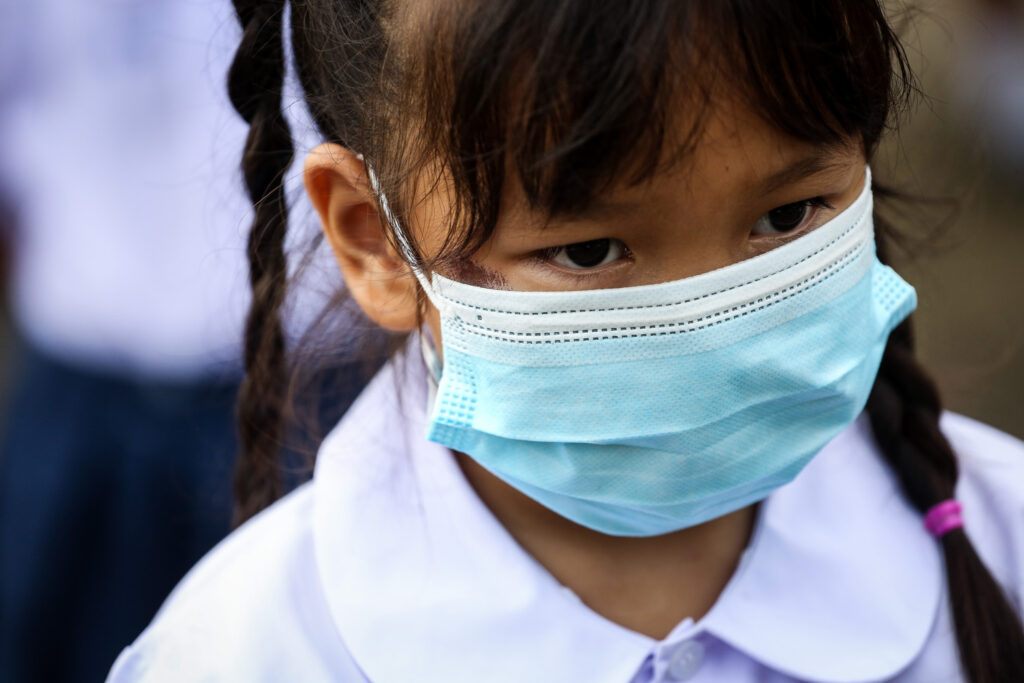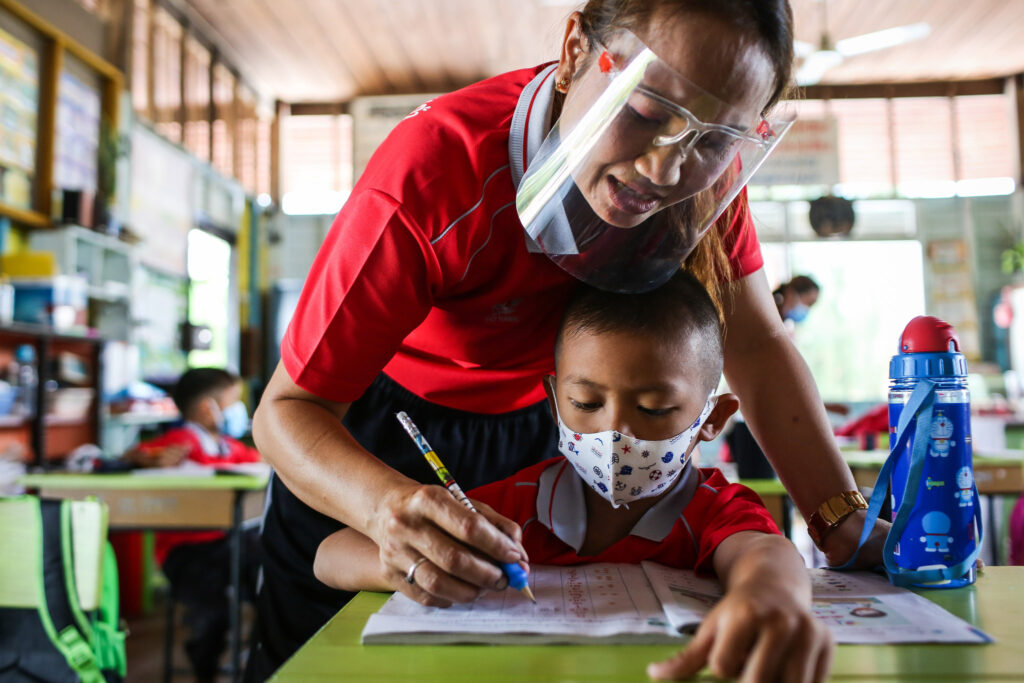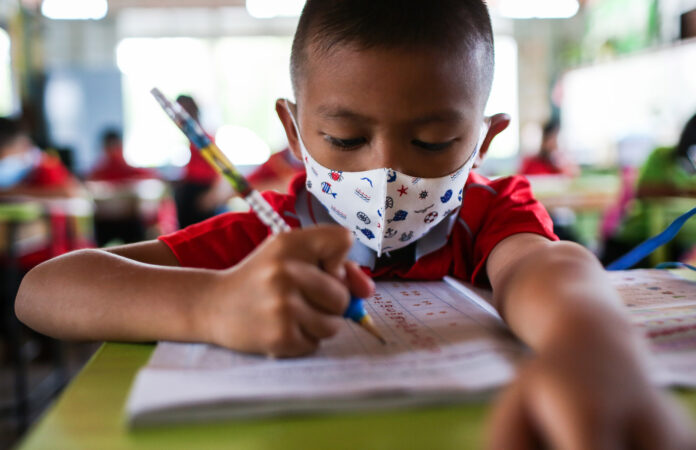BANGKOK– School closures have caused large and persistent damage to children’s learning and well-being. A global joint report recently issued by UNESCO, UNICEF, and the World Bank found students in most countries have fallen behind in their learning, especially children living in the poorest families, in rural areas, children with disabilities, and the youngest children.
In launching the global report, UNESCO Assistant Director-General for Education Stefania Giannini, UNICEF Director of Education Robert Jenkins, and World Bank Global Director for Education Jaime Saavedra jointly issued a statement calling on countries to step up efforts to get every child into school and urgently implement learning recovery strategies to help children make up for learning losses which can have lifelong consequences in children’s health and well-being, future learning and employment.
“With a combined 2 trillion hours of in-person schooling lost due to school closures since March 2020, students in more than 4 in 5 countries have fallen behind in their learning,” the statement noted. “Basic, foundational skills upon which every aspect of education is built have been erased in many countries. Children have forgotten how to read and write; some are unable to recognize letters. Children who were poised to start school for the first time never got the chance to learn these skills in the first place, as early childhood education disappeared in most countries.”
“The alarm was sounded many times. Six months into the pandemic, with a lack of access to remote learning, we already knew that at least a third of schoolchildren globally were completely cut off from their education. We knew that some 24 million children and youth were at risk of dropping out altogether. We knew child labor and child marriage would rise. And yet, not enough is being done to help children recover what they’ve lost.” the statement added.

In Thailand, prolonged school closures have affected millions of children especially the most vulnerable who lack access to online learning. According to a survey by the National Statistical Office in 2020, nearly half of families in Thailand were not ready for online learning; 51 percent did not have access to devices for online learning; 26 percent did not have internet access for online learning, and 40 percent of parents and caregivers said they did not have time to oversee their children’s online learning.
Despite efforts in improving access to faster internet, integrating more technology, and reducing class sizes in schools, the Office of Education Council reported last month that the pandemic has negatively affected the overall quality of teaching and the number of children absent from both online and offline classrooms has increased.
UNICEF Thailand is working with partners including the Ministry of Education and Equitable Education Fund to ensure safe school opening and help children catch up on their lessons. Under the pilot project being implemented in 40 schools in Samut Sakorn Province, UNICEF is supporting partners to assess the extent of children’s learning loss while organizing teacher training and providing them with materials and resources so that teachers can help each child with tailored catch-up lessons while facilitating overall education recovery. The learning from this project will be used to plan for a nationwide effort to address learning loss.
“Thailand has embarked on a nationwide initiative to identify children not returning or at risk of not returning to school,” said Kyungsun Kim, UNICEF Representative for Thailand. “The pandemic poses the greatest threat to education we have witnessed to date. UNICEF is committed to working with the Ministry of Education and partners to do everything we can to protect children from learning loss and being left behind. As the new semester will begin in the coming weeks, we must ensure that children are supported in every way to get their learning back on track and can progress even beyond what was lost. Unless we act now, the consequences will be irreversible and last for a generation to come.”
Globally, less than half of the countries featured in the report are implementing learning recovery strategies at scale to help children catch up on what they’ve missed. In addition, education funding has and continues to fall desperately short. Countries allocated on average 3 percent of their COVID-19 stimulus packages to education. In low- and lower-middle-income countries, the allocation was less than 1 percent.

The preceding is a press release published with full permission and authorization by the organization(s) listed in the PR material and TPN media. The statements, thoughts, and opinions of the organization involved in the press release are entirely their own and may not necessarily represent those of TPN media and its staff.




